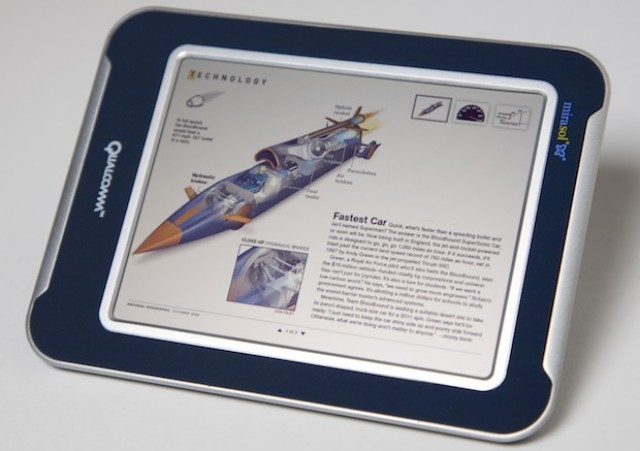Tech: Prediction: Mirasol displays could be in your tablet-reading future
- Is this the future of tablet design? The screen above, a hybrid of eInk and LCD called Mirasol, is getting some big buzz, and a certain client has Qualcomm paying $2 billion to ramp up production of the technology. Is it Apple? Is it Amazon? Is it HP? Is it somebody else? We don’t know, but we have to admit being able to read a tablet in direct sunlight would rule. source
